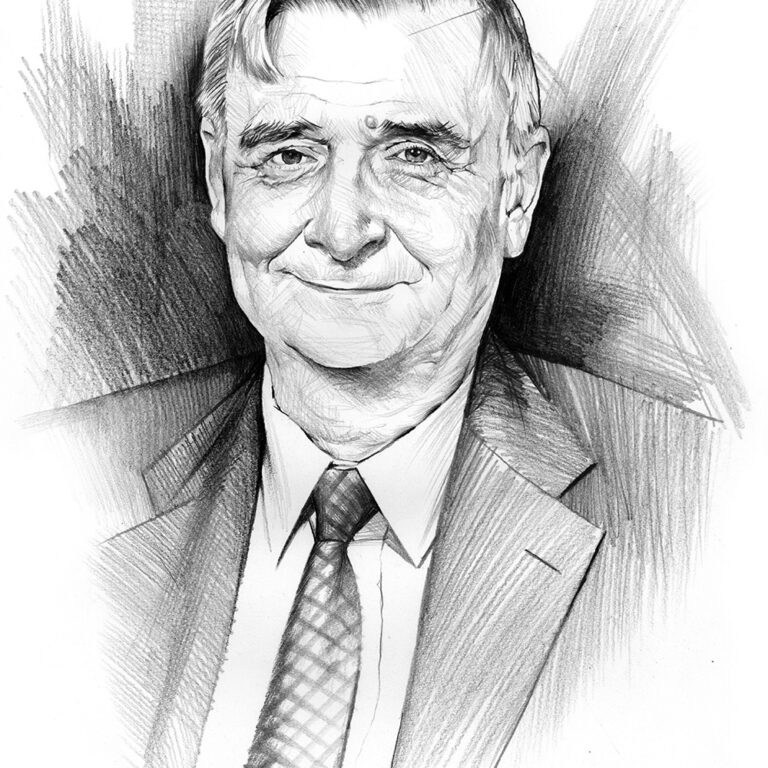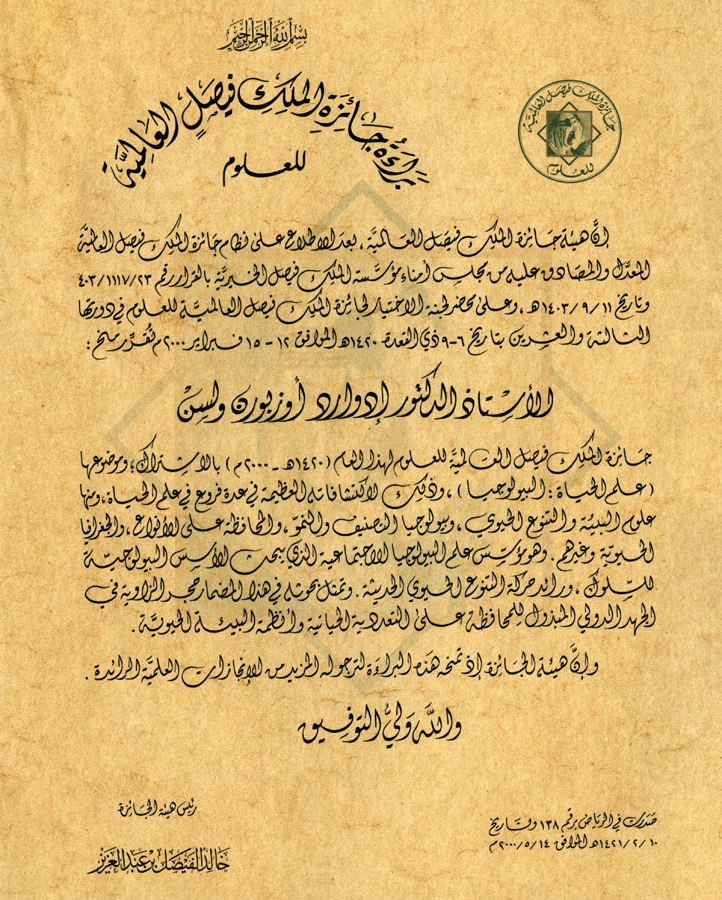

Professor Edward O.Wilson
King Faisal Prize in Science 2000 Laureate
Topic: "Biology "
The relation of biology to the social sciences and humanities, however it is eventually perceived and acted upon, will have a profound influence on how humanity perceives itself

Edward Wilson earned his B.S. in 1949, M.S. in 1950 from the University of Alabama, and his Ph.D. in 1955 from Harvard University. He served as a Professor at Harvard University from 1956, where he took on several distinguished positions. He was a Research Professor of Entomology at Pellegrino University, an Honorary Curator in Entomology at the Museum of Comparative Zoology at Harvard, and a Fellow of the Committee for Skeptical Enquiry.
Often known as Dr. Ant, Professor Wilson developed his profound interest in nature as a child. At the age of 13, he discovered the first ever colony of fire ants in the United States, invaders from South America. Drawing from his profound knowledge of these earth’s “little creatures,” he wrote what is probably his most important book, The Diversity of Life, in which he describes how an intricately interconnected natural system is threatened by a man-made biodiversity crisis he calls the “sixth extinction.” His most recent work focuses on the impact of human activity on life on earth.
Professor Wilson’s unequaled contributions extend to the fields of ecology, systematic, conservational, and behavioral biology, biogeography and ethical philosophy. He was the founder of the modern biodiversity movement and the father of sociobiology, a field that seeks to uncover the biological basis of human and animal behavior. The two most widely accepted concepts in ecology on which much basic and applied research rests are those of the r-K selection and island biodiversity. Both concepts were proposed by Wilson with the late Robert McArthur of Princeton University. The first concept is pivotal in evolutionary biology, while the second is the basis for all work on conservation and biodiversity.
Professor Wilson’s overall contribution represents an ambitious attempt to bring together, within a single conceptual framework, the various fields of knowledge from the natural sciences through the social sciences, to the humanities and arts. He authored and co-authored over 400 scientific articles, 20 books, and edited 6 other books. Five of his articles and books were identified as classic citations.
Professor Wilson was one of the most accomplished biologists and the most celebrated intellectuals of the 20th century. He received over 100 prestigious awards including the Crafood Medal of the Royal Swedish Academy of Sciences, the Benjamin Franklin Medal of the American Philosophical Society, and the US National Medal of Science. He has also been awarded several honorary doctoral degrees and Honorary Fellowships of nearly all prestigious science academies and societies worldwide. Two of his books won the renowned Pulitzer prize for nonfiction.
In 1995, Time magazine named Professor Wilson as one of the 25 most influential Americans, in 2000 both Time and Audubon magazines named him one of the century’s 100 leading environmentalists.
This biography was written in the year the prize was awarded.
- He founded sociobiology and evolutionary psychology, and developed the basis of modern biodiversity conservation.
- In 2005 Foreign Policy magazine named him one of the world’s 100 leading intellectuals.
- The E.O. Wilson Biodiversity Foundation was established in his honor in 2005.
- He published his book the Leafcutter Ants: Civilization by Instinct, (W.W. Norton & Company, (2011).
- He received many awards including:
- Lifetime Achievement Award, Time Magazine in 2001.
- Thomas Jefferson Foundation Medal in 2010.
- Professor Edward O.Wilson passed away in Burlington on 26/12/2021.



